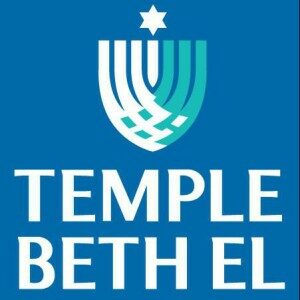Chanukah at Temple Beth El: Illuminating the meaning behind the “Holiday” of Lights
By: Dara Gever, Director of Youth Engagement
We have made it to the end of the November trajectory that shoots us through Thanksgiving and Black Friday, delivering us to the doorstep of the month of December like a package that arrives early. Our seasonal obligations were relatively straightforward up to this point: make plans to bring our families together for Thanksgiving; navigate complex family relationships and accommodate everyone’s unique (and sometimes crazy) food requirements; wait in line for a discount on Black Friday; and exclaim that December snuck up on us upon looking at the calendar on Monday morning.
Suddenly, as though overnight, holiday wreaths have sprung up around malls and holiday lights decorate every nook and cranny of our public living space. The Starbucks cashier wishes you a Happy Holiday, the dentist sends you a Happy Holidays card in the mail, and the world is alive with light shows and holiday editions of foods and drinks. The anticipation of Christmas transforms the landscape of American culture, turning all public venues into celebrations of this non-Jewish holiday.
American Jews, particularly those who are Reform, are renowned for our ability to assimilate to the norms of contemporary American society. In fact, the ability to conform to the society of which we are a marginal population has saved Jewish people from being expelled from society altogether for ages. In general, our Jewish rituals are neatly compartmentalized physically: we attend services at synagogue; we celebrate Shabbat with those who are close to us, privately; we light the menorah at home. We are Jews in the synagogue and home, and Americans outside of it. The term “Holiday” represents society’s acknowledgement that other religions—Jews in particular—wish to be a part of American society, one that is founded on Christian values. This term is an attempt to equate Christmas with the Jewish holiday of Chanukah, which usually falls very close to December 25th. In other words, it is an attempt to inject Chanukah with a measure of importance by associating it with Christmas. When the term “Holiday” is used during the month of December, it demonstrates how successfully American Jews have integrated into American society, after centuries of expulsion from communities of every generation.
Chanukah is certainly a unique Jewish holiday worthy of celebration, but we must be cautious not to fall into the habit of comparing a minor Jewish holiday with a Christian holiday that is, in comparison, colossal—comparable only to Easter in importance, truly. As Dr. Ron Wolfson explains in his article, “The December Dilemma,” found on MyJewishLearning.com, some Jews will conflate Chanukah with Christmas by telling their children, “’Christmas is for Christians. They have Christmas. We are Jewish. We have Hanukkah.’ In an attempt to substitute something for Christmas, the parent offers Hanukkah.” The challenge that we face during December is teaching our kids about the special significance of Chanukah without comparing it to or competing with the significance of Christmas.
The good news is that Temple Beth El’s mission is to provide a super fun Chanukah celebration for every age group. The k/1, 2/3, 4/5, and 6/7 junior youth group advisors have organized Chanukah events for all kindergarten through seventh graders. ALL events for kindergarten-seventh grade will take place on Saturday, December 13th from 3-5 PM. This date and time was chosen purposefully to maximize the convenience of dropping off kids of multiple ages. The LIBERTY board has been working around the clock to plan our Chanukah lock in from December 12th-13th. To find out more about all Chanukah youth, or to sign up and pay online, go to www.beth-el.com and look under “Temple Beth El Community Events” (you will have to scroll down a bit). There is also information about adult Chanukah programs on the Beth-El.com homepage. No matter what age you are, there is a Chanukah event that you’ll love at Temple Beth El.
Even though we cannot completely solve the “December Dilemma,” we can embrace the “Holiday” season as a time to remind our kids why being Jewish is unique, special, and cause for celebration.




